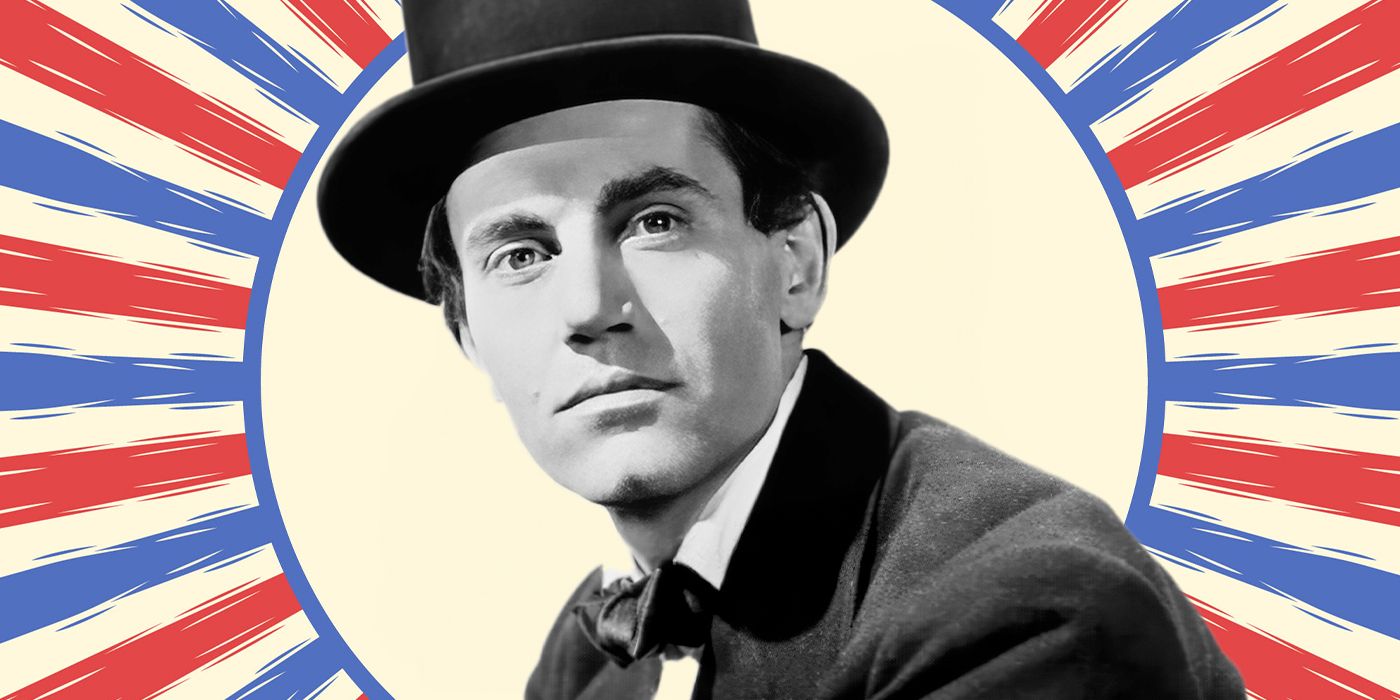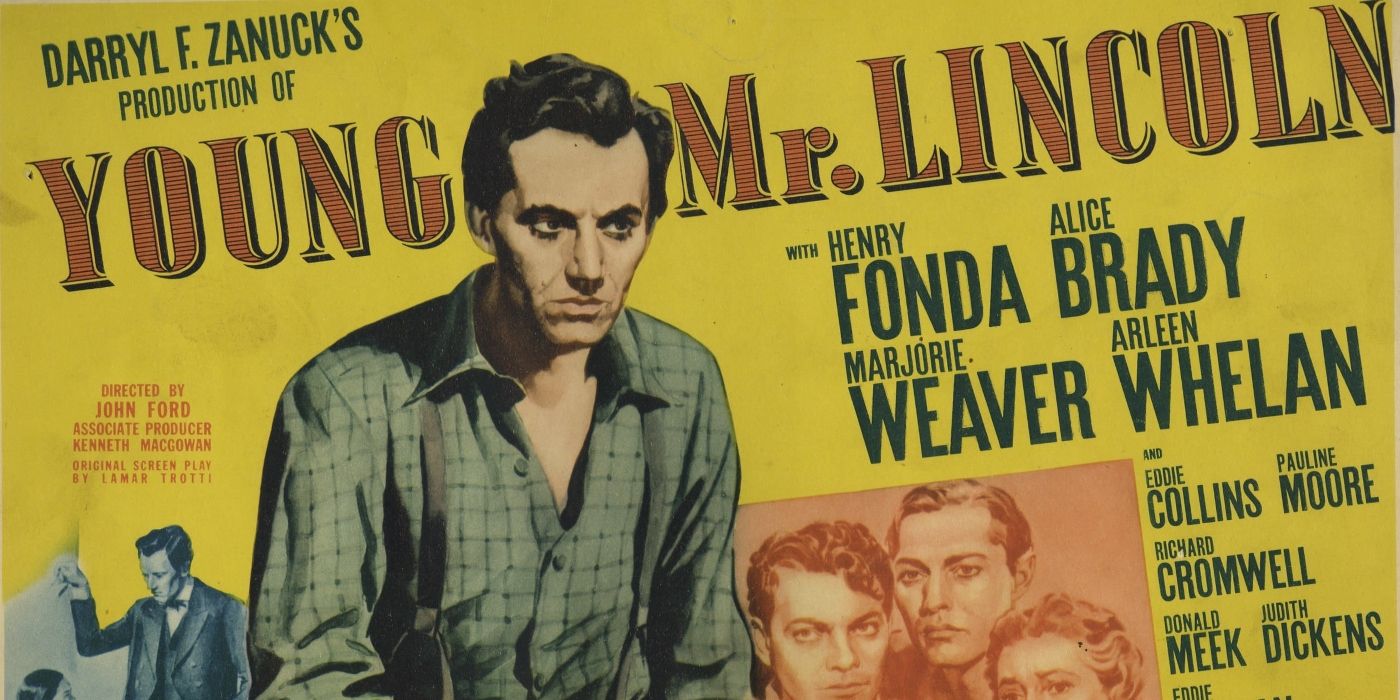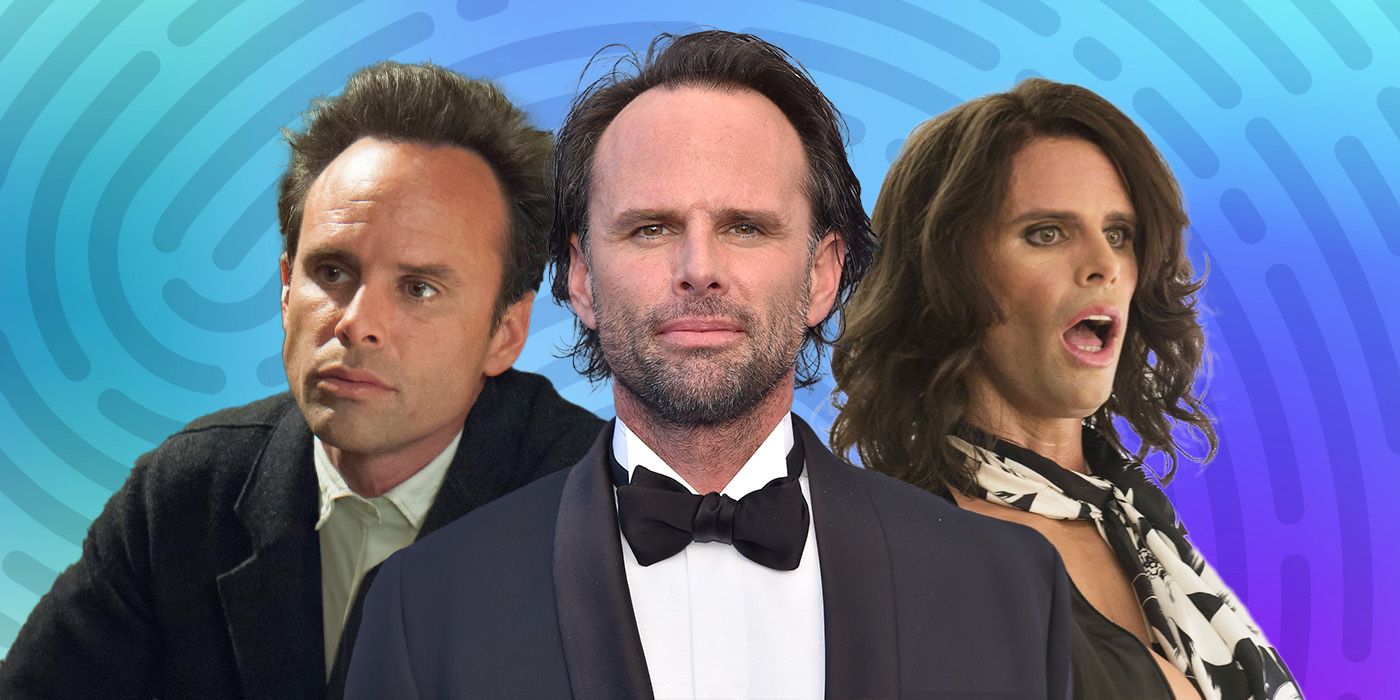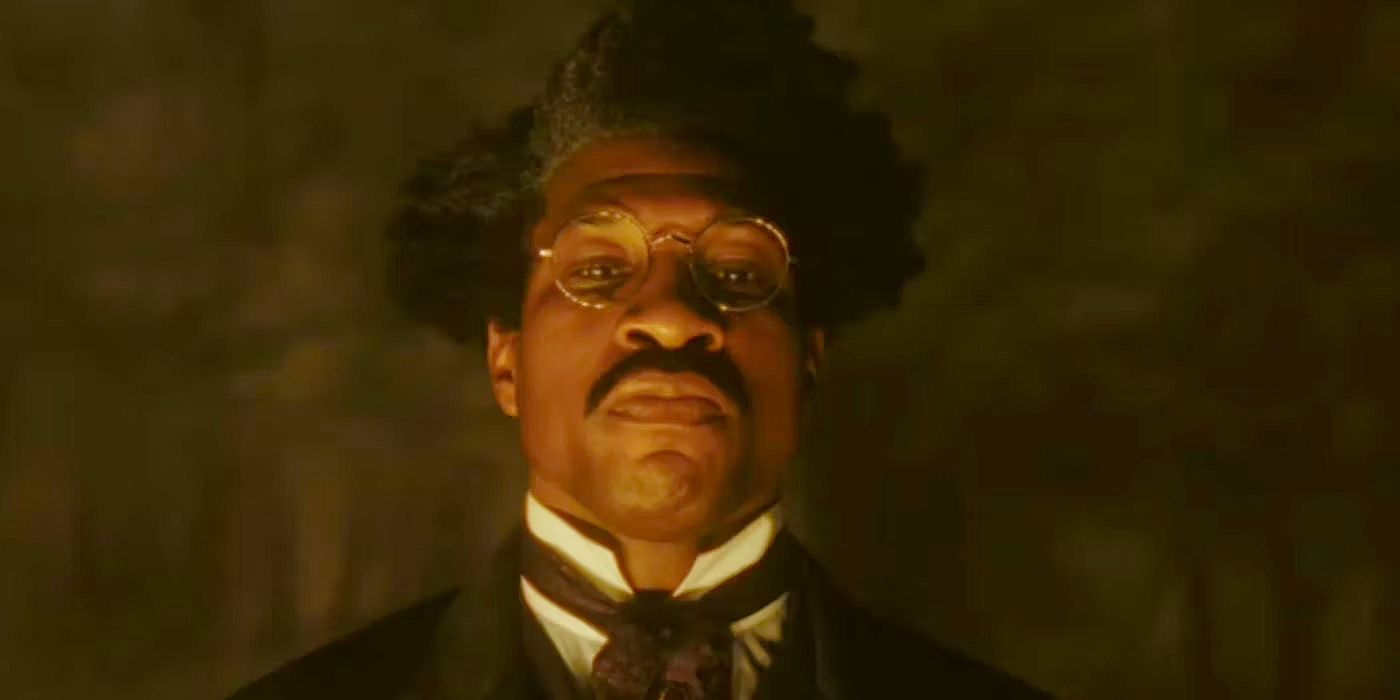The Big Picture
- Henry Fonda’s portrayal of Abraham Lincoln captures the essence of the iconic historical figure, showcasing his folksy charm and humanizing him.
- Young Mr. Lincoln is a powerful film that explores Lincoln’s early life as a lawyer facing a challenging trial, while also examining the monumental implications of his eventual rise to political office.
- John Ford’s direction and Henry Fonda’s performance bring out the best in each other, creating a moving and humanistic portrayal of a young Abraham Lincoln that stands apart from impersonations in other biopics.
No figure has quite the stature, both literally and figuratively, of Abraham Lincoln in the annals of American history. The 16th President’s towering impact on American history provides plenty of material for literature or fictional media. Ostensibly speaking, one could frame an entire story around one day in Lincoln’s life. One filmmaker, the legendary John Ford, whose expansive filmography brushes upon various facets of American history, tackled Honest Abe during his pre-Presidential office years as a wide-eyed attorney in Young Mr. Lincoln. Playing Lincoln on the big screen is a tall task, but few actors in the history of Hollywood were more equipped to carry that burden than Henry Fonda, the ultimate everyday American who expressed earnestness and gravitas in the same breath.
1939 is widely recognized as one of the most formative years in Hollywood history. The year that featured Gone with the Wind, The Wizard of Oz (both directed by Victor Fleming), and Mr. Smith Goes to Washington also raised the profile of the poetic demystification of John Ford. Already a prolific director, Ford’s 1939 double-billing included Stagecoach, the film that laid the groundwork for the modern Western and introduced audiences to John Wayne, and Young Mr. Lincoln. The film, a fictionalized portrayal of Abraham Lincoln’s (Fonda) early life as a youthful lawyer facing an arduous trial involving the defense of two men accused of murder in a political brawl, cemented Ford’s status as the preeminent author of examining American legends about the founding of the country in film.
Young Mr. Lincoln
A fictionalized account of the early life of the American president as a young lawyer facing his greatest court case.
- Release Date
- June 9, 1939
- Director
- John Ford
- Cast
- Henry Fonda , Marjorie Weaver , Arleen Whelan , Eddie Collins
- Runtime
- 100 minutes
- Main Genre
- Biography
- Writers
- Lamar Trotti , Rosemary Benét
Henry Fonda’s Abraham Lincoln Is a Passionate Lawyer
It is hard to think of a casting decision more apt than Henry Fonda playing Abraham Lincoln, a lawyer and political leader so defined by integrity and upright determination to move the nation forward. Two centuries since his presidency, he has lingered in the public consciousness as the idyllic president, one who stood for the entire nation rather than rigid partisanship. Fonda, who soulfully played the benevolent common folk in classics such as The Lady Eve, 12 Angry Men, and Ford’s The Grapes of Wrath, is impossible not to adore. Throughout each genre he inhabited, a Western, screwball comedy, or courtroom drama, Fonda possessed an innate movie star charm but was subtle enough to convey the characteristics of an average, everyday individual. Ford’s 1946 poetic Western, My Darling Clementine, features Fonda as a heavily dramatized Wyatt Earp and showcases his prowess for playing authority figures with eminence.
As the title indicates, Fonda plays a young Abe Lincoln, long before the man born in a log cabin had his eyes set on public office. This dramatization of Lincoln fits in with Ford’s films (before he enlisted in World War II) about working-class folk struggling to get by in the face of poverty, including The Grapes of Wrath and the Best Picture winner, How Green Was My Valley. The film opens with Lincoln speaking to a crowd in New Salem, Illinois, who is solicited to enter into public office. Despite being perhaps the most consequential figure in the history of the United States, Lincoln carries himself not just as a regular town folk, but an awkward and bashful man averse to the limelight. “My politics are short and sweet. Like the old woman’s dance,” Lincoln states to the crowd, as John Ford’s typically potent imagery captures the anxiety of public speaking. He does not talk about himself, but rather, his proposed policies, because his progressive actions for the country are all he represents.
Henry Fonda’s Abraham Lincoln Brings Out the Best in John Ford
We often envision Lincoln as a steadfast leader who is unwavering in his righteous path, yet Fonda brilliantly plays Lincoln as someone lost at sea. His disconnect with campaigning suggests that public office is not his calling card. It’s not until an impoverished traveling family exchanges a barrel of books for clothing at Lincoln’s store that he becomes inspired to practice law, as he discovers that one of the books is Blackstone’s Commentaries, an essential English treatise on common law. Conventional storytelling expectations may cite this shift in narrative as far-fetched, but Fonda’s earnest enthusiasm captures the most expressive form of John Ford’s poetic directing.
Lincoln is now “unlocked,” as he begins to understand the world around him, including nature, death, and love. Lincoln’s admirable self-reliance is equally matched by poignancy throughout the film. As much as his rise to becoming a respected attorney, and eventually, President, exemplifies the American Dream, Ford’s melancholic visuals and Lamar Trotti‘s dialogue suggest that the nation ultimately let Lincoln down at a young age. “Got to have education these days to get anywhere,” Abe says to his Ann Rutledge (Pauline Moore), his first wife. While in Springfield during a festival celebrating the veterans of the Revolutionary War, Lincoln competes in various physical competitions, including log chopping and tug-of-war. Watching a young Lincoln, who would eventually become the nation’s supreme leader during a national crisis in the American Civil War, announce himself through masculine exercises speaks to the nature of how people rise to power in the U.S.
Henry Fonda’s ‘Young Mr. Lincoln’ Performance Isn’t an Impersonation
Fonda makes the wise decision to portray the essence and spirit of Abraham Lincoln rather than partake in an impersonation. Today, Daniel Day-Lewis receives the most flowers for his Oscar-winning portrayal of the 16th President in Steven Spielberg‘s Lincoln. While the performance is carefully observed and lived in by the master of method acting in Day-Lewis, it never reaches the expressionist beauty of Fonda’s work in Young Mr. Lincoln. Frank Nugent, a critic for The New York Times who went on to write nearly a dozen scripts for John Ford, described Fonda’s performance as one that “kindles the film, makes it a moving unity, at once gentle and quizzically comic.” His tall and dignified posture matched with his warm but gently growing smile, allows for a dynamic presence. Lincoln’s benevolent demeanor is so pressing that he may inexplicably come off as inscrutable, especially during the trial sequence serving as the film’s climax.
1:50
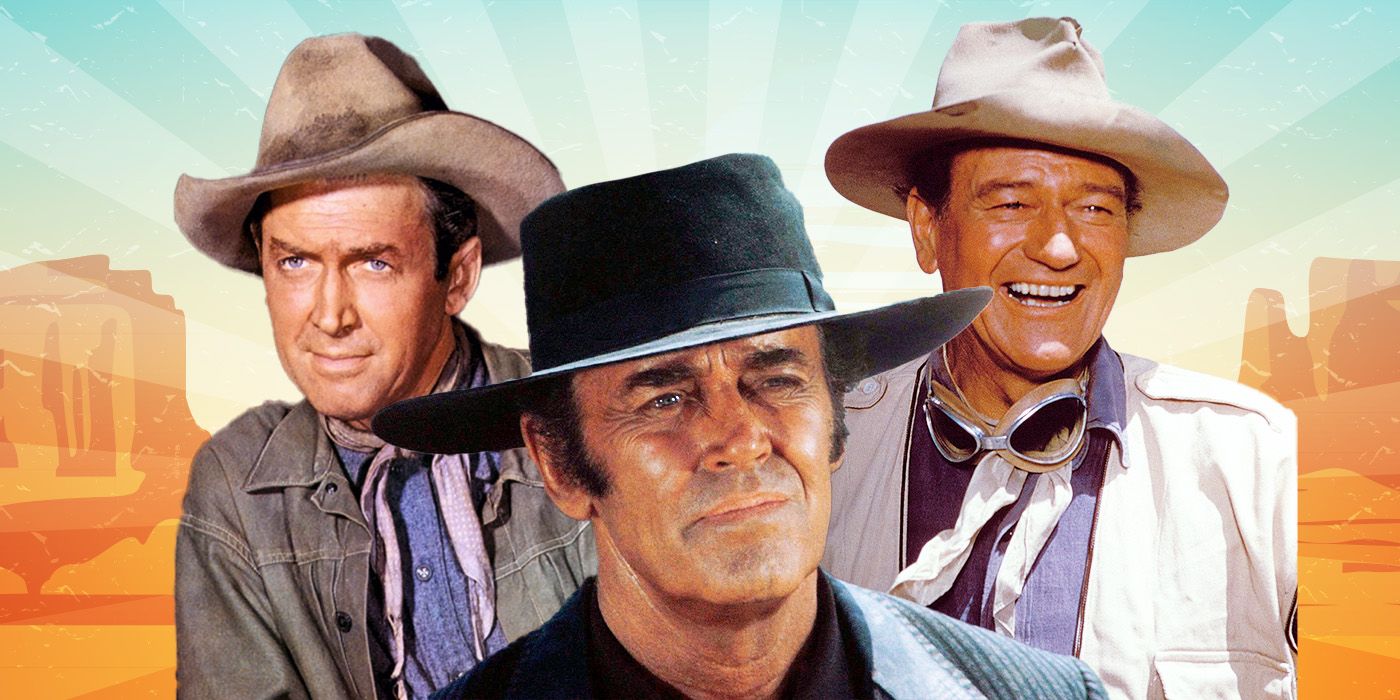
The Only Western With John Wayne, Jimmy Stewart, Henry Fonda, & the Rest of Hollywood
The box office hit had an A-list cast and was directed by three of the best filmmakers of their generation.
Initially, Fonda was apprehensive about playing Lincoln, as he equated it to “playing God,” in an interview about the film. Once Ford signed on to direct, he called the actor into his office and confronted his fears about the daunting task of playing a seismic figure like Lincoln. Fonda, in a Ford impression evocative of David Lynch‘s portrayal of the director in The Fabelmans, recalled that he asked, “You think he’s the great Emancipator, huh?” The director then exclaimed, “He’s a young, jack-legged, lawyer from Springfield for Christ’s sake!” Through Ford’s no-nonsense, cantankerous approach to interpreting text, Fonda’s distillation of Lincoln as an everyday individual, not the 16th President, was born.
In the end, Lincoln’s wholeheartedness provides an embracing comfort amid the Western backdrop of Ford’s non-Western film. When an impoverished Lincoln, following the death of Ann Rutledge, moves to Springfield to practice law, the quiet and soulful elegance of the open country is contrasted with the bustling chaos of the city. Anarchy ensues when the accused suspects in the murder trial are nearly lynched by a mob. Lincoln marches in front of the crowd to restore order, not with a pistol, but with the integrity of the law. In these moments when Lincoln takes center stage, in front of a rowdy mob or the courtroom, modern democratic civilization seemingly begins to formulate. “When men start taking the law into their own hands, they’re just as apt, in all the confusion and fun, to start hanging somebody who’s not a murderer,” the lawyer ponders to the crowd. This is an elementary grasp of the law, but under the context of Western tropes, and through Fonda’s elegant manner of speaking, this becomes increasingly more profound.
John Ford Gives ‘Young Mr. Lincoln’ a Powerful Ending
If Ford was like a painter behind the camera creating breathtaking visuals, then his closing shots are where he saved his true masterworks. The final shot of Young Mr. Lincoln sits alongside The Searchers as Ford’s most powerful ending, as it signals the triumph of Lincoln’s legal practice and the daunting future that awaits him. After winning his case, Lincoln is dropped off in an open field. Rather than riding home, he sets his eyes on a hill that he wishes to reach the top of. As “Battle Hymn of the Republic” plays and Ford’s favorite source of imagery (the horizon) sits toward the bottom, the poignancy of the scene and the entire film erupts in the form of a thunderstorm. The shot fades into an image of the Lincoln Memorial in Washington D.C. The balance between undying reverence and apprehensiveness in this closing moment matches Henry Fonda’s graceful performance as the titular man. We know what the future entails for Lincoln. He will restore the Union and spearhead the abolishment of slavery. Young Mr. Lincoln‘s ending tracks the monumental weight of its historical backdrop through Ford’s painterly storytelling.
Henry Fonda is an amazing actor whose sincere, and often mawkish, screen persona may cause him to fall out of favor with younger audiences, but his work in Young Mr. Lincoln highlights what a real-life portrayal ought to strive for in biopics. By enhancing Lincoln’s folksy and often boyish charm, Fonda makes the iconic historical figure a unique character that seamlessly fits into the oeuvre of John Ford. While he portrays Honest Abe as a savvy and expert lawyer, he is unafraid to show him being bewildered, which deeply humanizes him. Fonda’s performance is so immersive that you forget that you are watching the story of a towering American figure in his youth, but at the same time, John Ford never loses sight of the monumental implications of Lincoln’s gradual rise to political office. Expressive and grounded qualities are frequently lost in modern biopics, but Young Mr. Lincoln shows that the most moving storytelling comes in the most humanist forms.
Young Mr. Lincoln is available to rent on Prime Video in the U.S.
Rent on Prime Video

